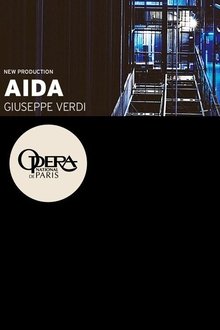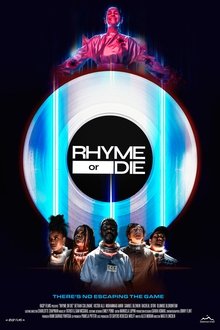Alone in the woods, a young man is pursued by a horrifying specter and by visions of his deceased sisters. A meditation on the precarious uncertainty of the American Dream and the role that uncontrollable forces play in our lives, The West is a Land of Infinite Beginnings is inspired by a harrowing scene from the opera Proving Up, by composer Missy Mazzoli and librettist Royce Vavrek.
Related Movies

Aida - Arena di Verona (2013)
The grand scale and magnificent acoustics of the Roman arena in Verona are ideally suited to the pageantry of Verdi's Egyptian opera, presented here in a staging that is true to the original 1913 production, framed by obelisks and sphinxes and filled with chorus and dancers. Chinese soprano Hui He has won international acclaim for her portrayal of the eponymous slave girl whose forbidden love for the war hero Radamés (Marco Berti, the experienced Verdi tenor) brings death to them both.
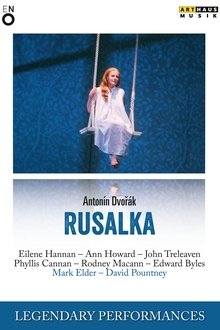
Rusalka (1986)
Dvořák's "Rusalka" in a production by David Pountney at the English National Opera in 1986. Mark Elder conducts the orchestra, accompanied by the English National Opera Chorus in English.

Freshman Love (1931)
In this 100% fictional-plot short a fictional freshman, played by an actor named Don Tomkins), becomes smitten with and writes letters to a singer, Ruth Etting (Ruth Etting), on a fictional radio station. His fictional 1930s nerdy friends take her answering letters in return and torment him about no response. The fictional Ruth Etting (played by the real Ruth Etting) meets him and helps him turn the tables on his tormentors.
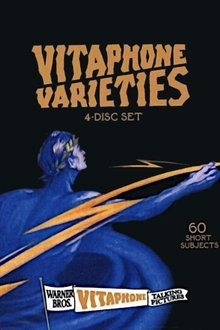
The Song Plugger (1930)
'Blind Bob' has written a song and the folks at the music publishing company think that Joe Frisco, his old friend from the Bowery is just right for it. So we see Joe at stage doing his peddler routine. He goes over to the publishing company, where he flirts with a girl act, and then tries out some eccentric dancing to the new song, which happens to be 'Get Happy.'

Gounod - Romeo et Juliette (2023)
Romeo and Juliet is the most famous love story of all time. In Charles Gounod's operatic adaptation of the Shakespearean tragedy at the Gran Teatre del Liceu in Barcelona “Saimir Pirgu and Aida Garifullina mesmerize as the tragic lovers” (Euronews). Charles Gounod is one of the great representatives of French lyric drama and due to his famous aria “Je veux vivre”, ravishing melodies, magical duets and the unique ballet scene in Act IV, Roméo et Juliette continues to gain much popularity. This production by Stephen Lawless once again demonstrates the abundance of ideas that Shakespeare’s legendary tale is able to inspire, even in the 21st century. In addition to the lavish stage sets and the carefully chosen costumes and props, the production captivates the audience thanks to its refined dramaturgical logic

Look at Me (2022)
Rehearsals for a fundraising gala become the arena for a struggle between two men; one, the gala director and the other, a richly talented but unstable rock drummer. As their battle for expression and control escalates against a relentless rhythmic backdrop, their public and private selves explosively collide.

Carmen Torero z „Carmen-Suity” (1996)
Utterly astounding, iridescent sand animation from Aleksandra Korejwo based around Bizet's Carmen.

La Danse Macabre (1990)
A beautifully fluid sand animation inspired by Camille Saint-Saëns' piece, 'Danse Macabre.'
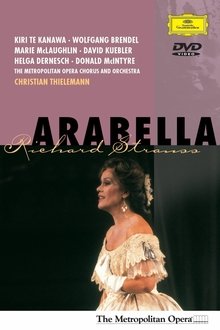
Arabella (1994)
Arabella, Op. 79, is a lyric comedy or opera in three acts by Richard Strauss to a German libretto by Hugo von Hofmannsthal, their sixth and last operatic collaboration.
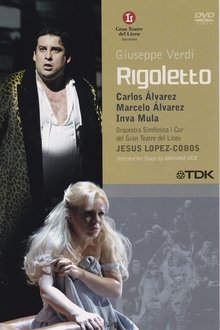
Rigoletto (2004)
In Rigoletto, the deformed figure of the hunchbacked jester at the Mantuan court acts as a foil to his cynical and powerful master, an unscrupulous philanderer contrasted with his cruel and unforgiving fool. Rigoletto encourages and welcomes the Duke's conquests, pitilessly mocking his victims until he discovers that the Duke has abducted the one person he genuinely loves, his own daughter. As a result, the character of the court jester is transformed into a tragic figure who, in spite of his evident immorality and malice, allows us to sense the devotion he feels for his daughter and his horror at being destroyed by the same despotic world as that which he himself has helped to create.
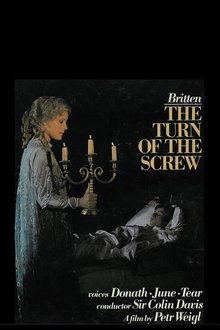
The Turn of the Screw (1982)
Benjamin Britten’s opera of the Henry James novel. An inexperienced governess is sent to a country house to care for two children, whom she is gradually convinced have been corrupted by the ghosts of a previous manservant and governess…
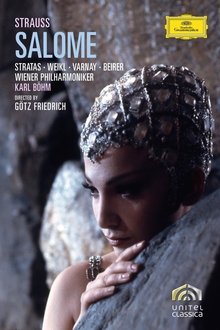
Salome (1974)
This filmed version of Strauss' shocker features Teresa Stratas as opera's most depraved teenager, and she's as perfect a Salome as one would ever hope to see or hear. Stratas inhabits the role, exploring the character's sensuousness as she vainly woos Jochanaan, her venomous hatred when she's rejected, the crazed look in her eyes when she demands his head--on a silver platter, no less. Such complete identification with a role, especially of a character so malignant helps make this 1974 Salome stand out among the many fine DVDs of the opera.
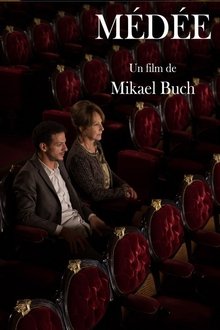
Médée (2017)
A lonely mother and her son go to the opera where a performance of Cherubini’s opera Medea is given. It is the mother’s birthday and she wanted to surprise her son by inviting him to the opera. But, the son’s plan were different and he is quite upset about it. His mother tries to break the silent barrier behind which he hides. A semblance of discussion begins, not without humour. Tension is present but, as the performance goes on, both find themselves astounded, captured, alone in the opera house.

Farinelli (1994)
The life and career of Italian opera singer Farinelli, considered one of the greatest castrato singers of all time.
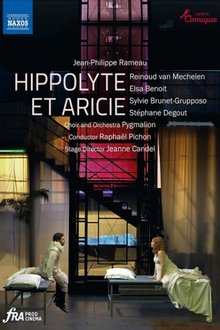
Hippolyte et Aricie (2020)
In October 1733, the audience at the Académie Royale de Musique witnessed the birth of a revolutionary work: Hippolyte et Aricie. With its inventiveness and musical richness, Rameau’s opera marks a break in the history of French music. A similarly revolutionary duo – Jeanne Candel and Raphaël Pichon – get to grips with this work for the Opéra Comique.


